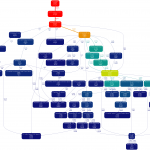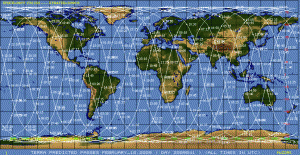There is a very interesting article on the insciences.org, it talks about the use of a Genetic Algorithm to create images used to test people brain performance:
The team developed a ‘genetic algorithm’, based on a simple model of evolution, that can breed a range of images and visual stimuli which were then used to test people’s brain performance. By using artificial intelligence to design the test patterns, the team removed any likelihood of predetermining the results which could have occurred if researchers had designed the test pictures themselves.
Read the full article or see the created images.



